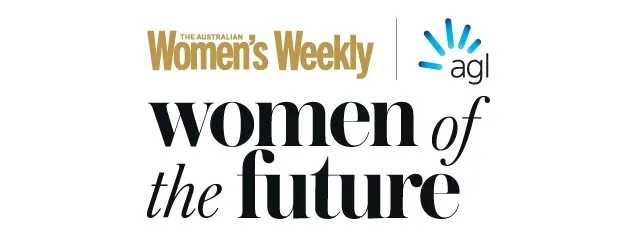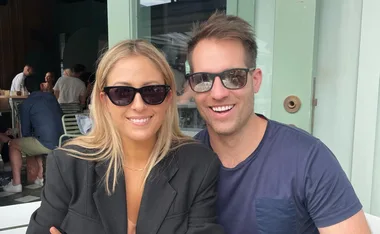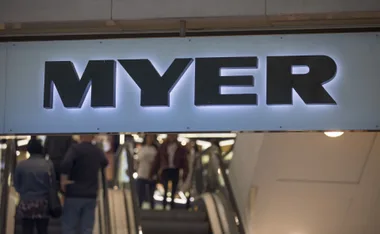
While recent events and Hollywood admissions have created an increasing buzz around the topic of gender equality, the sad truth is that Australian women still remain seriously under-represented in almost all stages of the career pipeline.
Women undoubtedly play a crucial role in Australia’s economy — and the development of its industries — making up 42 per cent of employees at large for-profit companies.
However, when it comes to senior management roles, women account a quarter of executive positions across the board, and just 10 per cent of these companies’ CEOs are female.
With a minimal growth rate in female leadership across all industries over the last three years (2.8 per cent to be exact), it’s evident that gender equality in the Australian workplace is a continuing challenge.
But it’s not all doom and gloom, there are some businesses doing more than just talking the talk; businesses that are implementing policy changes and offering additional support to create a workplace where women and men are valued equally.
Here, five of those companies, leading the charge locally and making Australia proud in their commitment to workplace gender equality.
AGL
As one of Australia’s leading energy companies, AGL has shown its commitment to an inclusive and diverse workplace by establishing a female-based leadership program, aimed at enhancing female employees’ skill sets through developing their capability to operate as senior leaders.
Consisting of group work, one-on-one coaching, leader-led workshops and shadowing executive team members, the program — known as Illuminate — has achieved impressive results since its 2014 launch: All participants reported increased confidence levels and 50 per cent have since been promoted or moved onto broader roles.
Setting the standard for large public corporations, AGL is one of just 22 ASX 50-listed companies with more than 30 per cent female representation on its board. Despite having already reached its 2019 financial year target — 40 per cent of those in its senior leadership pipeline are women — AGL is far from resting on its laurels, looking again to increase this statistic and achieve a higher rate of female leaders.
AGL’s head of energy supply and origination, Phaedra Deckart, has been a pioneer in the company’s attitudes to gender equality, publicly speaking out about the need for more females in senior leadership positions. Hear, hear!
Stockland
Australian property development company Stockland — best known for its shopping centres and housing estates — has shown its commitment to workplace gender equality with longstanding competitive parental benefits.
Starting up a Parents and Carers Employee Advocacy Group in 2016, the company holds monthly meetings to check in with employees and look for ways to improve the experience of carers. Most recently, Stockland altered their definition of ‘carer’ to include elder care in addition to parents with children.
Stockland also offers secondary carers an additional 14 weeks paid leave if they decide to become a primary carer. By encouraging secondary carers (statistics show these are predominantly men) to take primary carer’s leave, the company fosters greater opportunity for a balanced workforce.
Unilever
The Australian branch of European consumer goods company, Unilever, has made it their aim to break the perception that flexitime equates to a lack of career commitment.
Instead of solely offering new parents or carers flexible schedules, Unilever explicitly encourages all employees to work from home. In 2016, the company declared all roles “flex” — in a bid to normalise flexible working hours by allowing staff to balance personal commitments alongside their careers — and unlocked more job share opportunities.
“I’ve been lucky enough to have had my two lovely children whilst working at Unilever over the past seven years and have taken up a variety of flexible working options to help juggle it all including working four-day weeks, working from home regularly and flexible hours,” says Unilever’s Emma Peacock. “Flexible working has allowed me to progress to a leadership position while balancing the needs of my family.”
GHD
Recognised as a WGEA Employer of Choice for Gender Equality, engineering and construction company GHD has set itself a target of having a 40 per cent female workforce by 2020. Operating within a largely male industry, the company has proved its support for female workers, establishing a Women in GHD networking group — an initiative active in many of the company’s global offices — and annual pay equity checks to help combat the gender pay gap.
The company recently developed a career relaunch program, now offering returning staff members extra support after taking time off. Showing their understanding of the difficulties faced when re-entering the workforce, GHD offers a flexible and goal-orientated program aimed to encourage and support returning professionals, including women returning from maternity leave.
AECOM
Last October, engineering firm AECOM made headlines when it launched its school term-only contracts for a number of roles across the business’ Australian and New Zealand divisions. Working with FlexCareers, an online organisation aimed at changing the way Australian businesses operate, AECOM’s family-centred contracts were established to encourage qualified scientists and engineers to return to an industry they love, rather than having to leave due to personal carer’s commitments.
Currently on a first-year trial, the initiative, which sees parents take up to 12 weeks annual leave to coincide with school holidays, is AECOM’s way of upping the number of females in the workplace. Today, women make up less than 12 per cent of all qualified engineers in Australia.
“There is a significant pool of talent who have stepped away from our industry because they were unable to nurture their families and their careers at the same time.” AECOM chief executive for Australia and New Zealand, Todd Battley, said. “That no longer has to be the case. We will be able to target an extensive network of parents and guardians who are seeking flexibility to manage childcare responsibilities.”
Brought to you by AGL



.png?resize=380%2C285)






